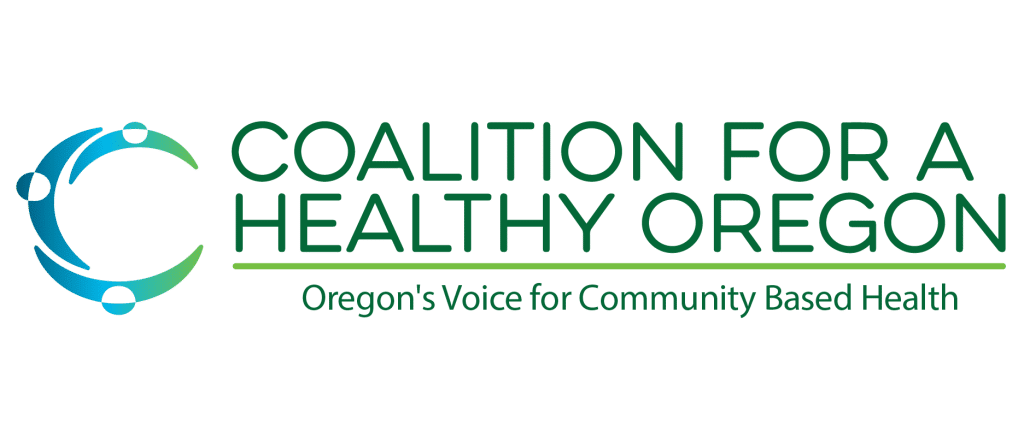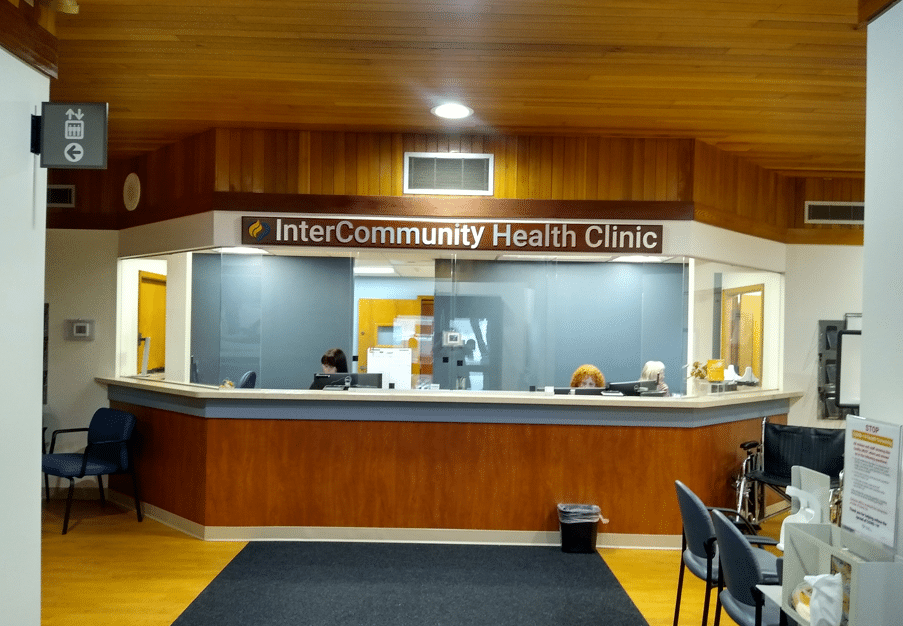Grounded in Equity
Partnerships Helping IHN-CCO Forge Better Health Outcomes
The new Samaritan InterCommunity Health Clinic-Albany officially opened its doors on Oct. 28.
A bright and inviting atmosphere greets patients as they enter the new InterCommunity Health Clinic in Albany, which officially opened its doors on Oct. 28.
Here, a team of doctors, nurse practitioners, behavioral health specialists, and medical assistants is providing greater access to care for the 87,000 members of InterCommunity Health Network (IHN-CCO) across Linn, Benton, and Lincoln counties.
“One of (our) major challenges would be primary care capacity and access,” said Bruce Butler, CEO of Samaritan Health Plans. “We’re certainly not alone in that.”
Access to quality care is one of four priority areas identified in IHN-CCO’s latest Community Health Improvement Plan, or CHIP. The other three include access to housing; behavioral health; and diversity, anti-racism, equity.
In order to drive better health outcomes, Butler said IHN-CCO has cultivated an extensive network of community partnerships with organizations that are already working directly with their members. This bottom-up approach is at the heart of the coordinated care model, and a major part of what Butler said makes IHN-CCO indispensable in the region.
“Our greatest strength is the history and continuity of community partnerships,” Butler said. “They have a line of sight into community members’ needs, and the operational realities on the ground of how to meet those needs.”
Regional Assessment
Todd Jeter, Behavioral Health Director for Samaritan Health Plans, highlighted several partnerships that are helping identify health needs and strategies across the region.
In 2020, IHN-CCO and Samaritan Health Services started the process of creating a region-wide Community Health Assessment. Partners included the three county health departments in Linn, Benton, and Lincoln counties; the Linn Benton Lincoln Health Equity Alliance; the Confederated Tribes of Siletz Indians; IHN-CCO’s own Community Advisory Council; and United Way of Linn, Benton & Lincoln Counties.
“We made great strides to make sure that that effort was grounded in equity, elevated community members’ voices, and that there was really meaningful engagement,” Jeter said. “We organized that under a collective impact framework, driving and leveraging our collective resources and contributing to those interdisciplinary and cross-entity relationships that we know are a foundation to the systemic change that we’re really working towards.”
The Regional Health Assessment was published in 2022 and runs through 2026. It identifies seven key health themes, including:
- Access to Affordable Housing and Homelessness.
- Access to Quality Care.
- Equity, Diversity, and Inclusion.
- Food Insecurity and Access.
- Healthy Youth and Families.
- Mental Health
- Substance Use and Misuse.
After completing the assessment, the partnership then began work on an updated CHIP, which the Oregon Health Authority requires at least every five years. Jeter said the latest CHIP has been adopted and will be published soon.
Previously, the CCO, counties, and each hospital would complete its own individual assessment and improvement plan. That approach, however, could be tiring for partners trying to figure out where they all fit in, Jeter said. He called it “engagement fatigue.”
“This partnership is really grassroots and bottom-up,” Jeter said. “It reflects the true intent of the CCO model. I just can’t say enough about how meaningful it’s been, and where we’re going with it.”
Behavioral Health Strategy
Another key partnership, Jeter said, is the Regional Behavioral Health Strategy Committee, composed of IHN-CCO, Samaritan Health Services, and the three counties.
The committee did a gaps analysis in 2023, and then earlier this year broke out into three subcommittees focused on substance use disorder, emergency services, and behavioral health workforce.
For example, Jeter said their analysis showed that, for substance use disorders, residential treatment and detox centers across Oregon have become more localized resources, making it harder for CCOs outside of areas where facilities are located to gain access.
In response, he said the subcommittee has come up with recommendations for re-negotiating contracts with these facilities to incentivize access and ensure that members can recover closer to home.
“It’s been a really good example of taking a group of collective (experts) to make data-informed decisions that we think are going to make a big difference,” Jeter said.



